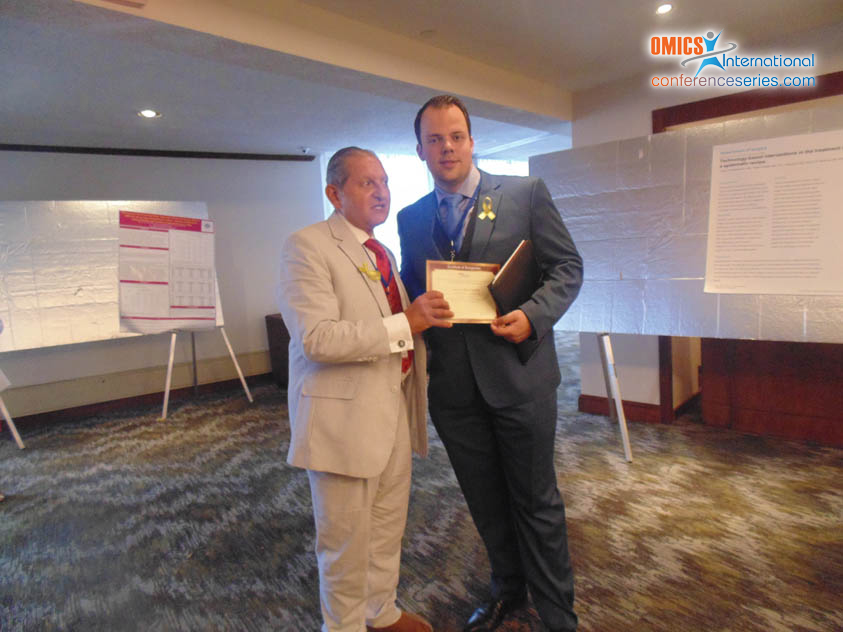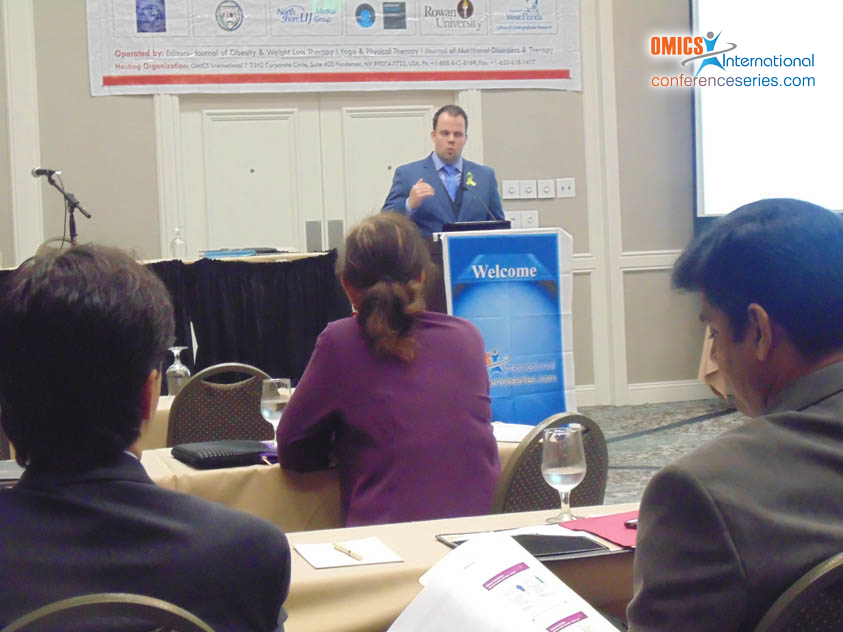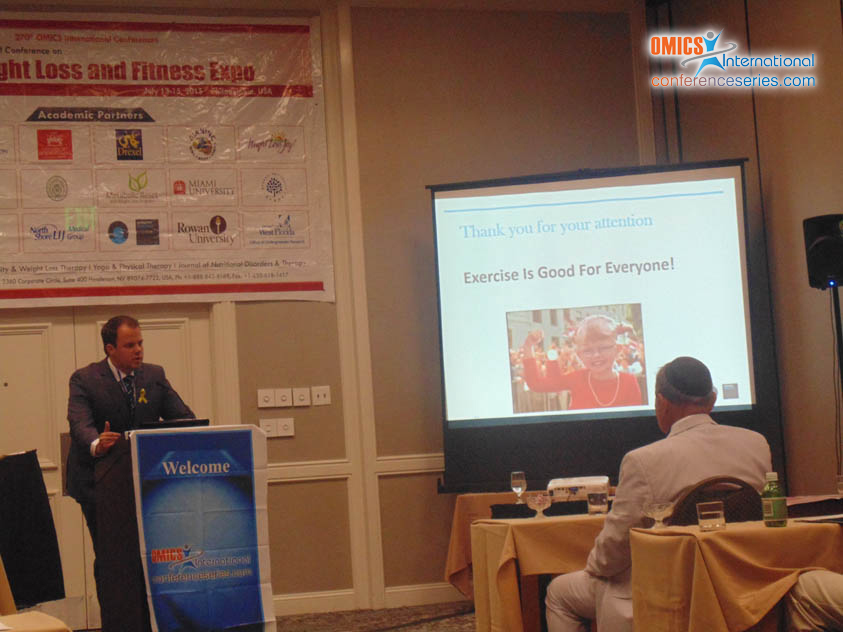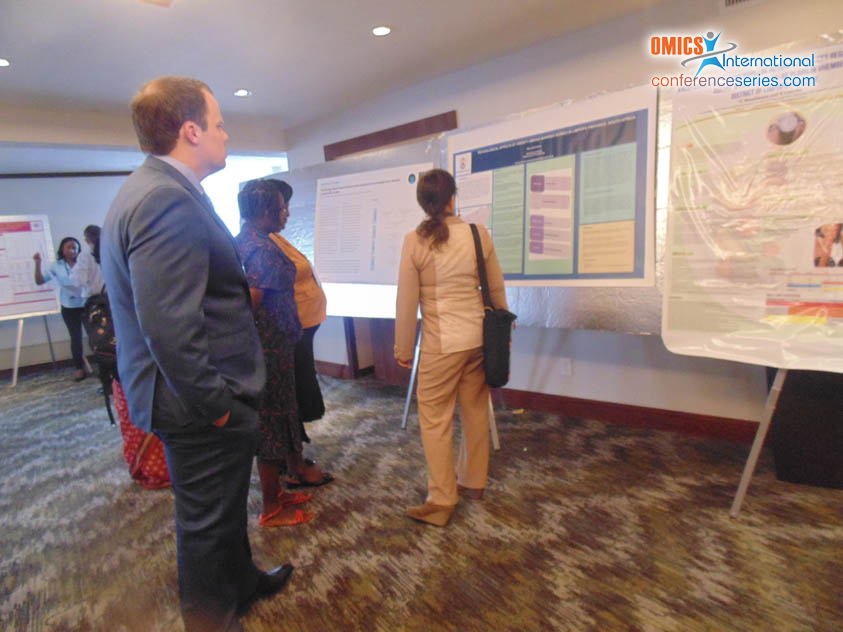
Sjaak Pouwels
Catharina Hospital, The Netherlands
Title: Effects of bariatric surgery on inspiratory muscle strength
Biography
Biography: Sjaak Pouwels
Abstract
Introduction The respiratory function is affected by obesity due to an increased deposition of fat on the chest wall. Objectives The objective of this study was to investigate the strength of the inspiratory respiratory muscles of obese individuals and the possible influence of bariatric surgery. Methods Of the patients referred to our bariatric centre between the 3rd of October 2011 and the 3rd of May 2012 the Maximum Inspiratory Pressure (MIP) was measured at screening and 3, 6 and 9 months postoperative. Results The mean age of the 124 included patients was 42.9 ± 11.0 years and mean BMI was 43.1 ± 5.2 kg/m2. The mean predicted MIP preoperatively was 127 ± 31 in cm H2O and the mean measured MIP was 102 ± 24 in cm H2O. Three patients (2.4%) received training. Three months after surgery the MIP was 76 ± 26 cm H2O, after 6 months 82 ± 28 cm H2O and after 9 months 86 ± 28 cm H2O. All postoperative measurements were significant lower than preoperatively (P<0.05). No significant difference was found between patients who had a sleeve gastrectomy compared to a gastric bypass (P=0.06, P=0.165 and P=0.124 after 3, 6 and 9 months respectively). The only influencing factor for the preoperative MIP was age (p=0.014). Conclusion The preoperative MIP values were significantly lower than the predicted MIP values and a significant decrease in inspiratory pressures was found at 3, 6 and 9 months after bariatric surgery






